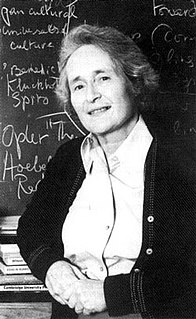A Quote by Aldous Huxley
Perhaps dirt is the necessary condition of beauty.... Perhaps hygiene and art can never be bedfellows. No Verdi, after all, without spitting into trumpets. No Duse without a crowd of malodorous bourgeois giving one another their coryzas. And think of the inexpugnable retreats for microbes prepared by Michelangelo in the curls of Moses' beard!
Related Quotes
For those who pass it without entering, the city is one thing; it is another for those who are trapped by it and never leave. There is the city where you arrive for the first time; and there is another city which you leave never to return. Each deserves a different name; perhaps I have already spoken of Irene under other names; perhaps I have spoken only of Irene.
With an abstract idea it is possible to enter into a relation of formal knowledge, to become enthusiastic about it, and perhaps even to put it into practice; but it can never be followed in personal obedience. Christianity without the living Christ is inevitably Christianity without discipleship, and Christianity without discipleship is always Christianity without Christ.
How it is that animals understand things I do not know, but it is certain that they do understand. Perhaps there is a language which is not made of words and everything in the world understands it. Perhaps there is a soul hidden in everything and it can always speak, without even making a sound, to another soul.
If we can abstract pathogenicity and hygiene from our notion of dirt, we are left with the old definition of dirt as matter out of place. This is a very suggestive approach. It implies two conditions: a set of ordered relations and a contrevention of that order. Dirt then, is never a unique, isolated event. Where there is dirt there is a system. Dirt is the by-product of a systematic ordering and classification of matter, in so far as ordering involves rejecting inappropriate elements.
I'm obsessed with insects, particularly insect flight. I think the evolution of insect flight is perhaps one of the most important events in the history of life. Without insects, there'd be no flowering plants. Without flowering plants, there would be no clever, fruit-eating primates giving TED Talks.
That this liberty [of the press] is often carried to excess; that it has sometimes degenerated into licentiousness, is seen and lamented, but the remedy has not yet been discovered. Perhaps it is an evil inseparable from the good with which it is allied; perhaps it is a shoot which cannot be stripped from the stalk without wounding vitally the plant from which it is torn. However desirable those measures might be which might correct without enslaving the press, they have never yet been devised in America.






































